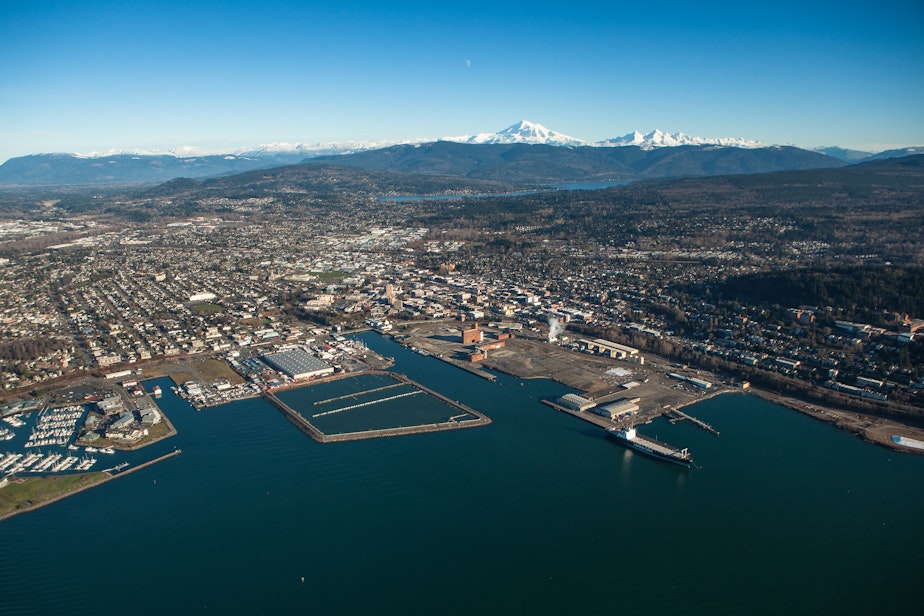City of Bellingham sends love letter (of sorts) to Canadian neighbors boycotting the US

It's been four months since the start of cross border tensions between the US and Canada and the boycott of Canadian visitors is deepening. The latest traffic data shows half the number of vehicles with Canadian plates coming into Washington state in April compared to last year. It's a blow to Whatcom County, which usually sees Canadians pump around $140 million a year into the local economy.
Last week, the Bellingham City Council and the mayor took another step in trying to mend fences. They wrote a love letter of sorts to Canadians and sent it to the leaders of nine BC cities in the lower mainland, including Vancouver. KUOW’s Kim Malcolm talked to Bellingham Mayor Kim Lund about the letter.
This interview has been edited for clarity.
Kim Malcolm: Tell me about the letter and how you and the councilmembers came up with this idea.
Mayor Kim Lund: The intention behind the letter is an affirmation. It's an affirmation of our extraordinarily long, lasting and enduring, peaceful partnership with our neighbors to the north. At the beginning of the current administration, there were some conversations about the 51st state rhetoric. And while we can't control the conversation in the other Washington, we can control the conversation at the local level.
I know you sent the letter out a few days ago. Have you had any responses yet?
We've had a lot of responses from Canadian citizens. I think there may be a misunderstanding that the letter was in an effort to increase cross border traffic right now for economic stimulus. And really, if you take a look at the letter, that is not the spirit and intent at all. It really is that expression of commitment and our connection to Canadian people.
Sponsored
And what do you say to that? If the Canadians are saying-- ‘Well, okay, you're sending us this nice letter, maybe you're asking us to come down more, but we're not buying it.’-- how do you respond to that?
I think above all we want to say that we respect and understand the hurt feelings right now. And if the shoe was on the other foot, we would acknowledge how we would be feeling right now. I think that's really what we can do, is just say we see you and understand this experience.
Why is the drop in Canadian visitors in Bellingham an especially big deal?
I think certainly the drop in traffic is a big deal for certain industries and certain sectors of our local economy. That's absolutely true, especially for hospitality, as people are canceling their summer vacation plans.
But I think it's bigger than that. It will be missed opportunities to sit next to Canadian neighbors up at the campgrounds in Birch Bay or at a Bells game. It's those experiences that we have taken for granted, where we get to engage with our neighbors to the north that I think we're going to miss the most. There's been regular opportunities for neighbors on both sides of the border to come together to shake hands, spend some time face to face, reaffirming our commitments and our values.
Sponsored
The current tariffs, the President's calls to annex Canada, calling it a 51st state, this rhetoric, these actions, it's all happening up at the federal level, and at a certain level, there's really nothing you can do about that. How do you think this is going to resolve?
Honestly, I think it's going to take a long time to resolve. The sense of betrayal and sadness that comes across in many of the correspondences that I'm reading from Canadian residents, that's going to take time to heal. They're surprised at the quick turn of the conversation at the federal level. What we can do, what's in our locus of control, is to say that rhetoric is not an expression of how we feel our community's values. I think it's going to take time for this to resolve and for us to move forward together again.
Listen to the interview by clicking the play button above.





